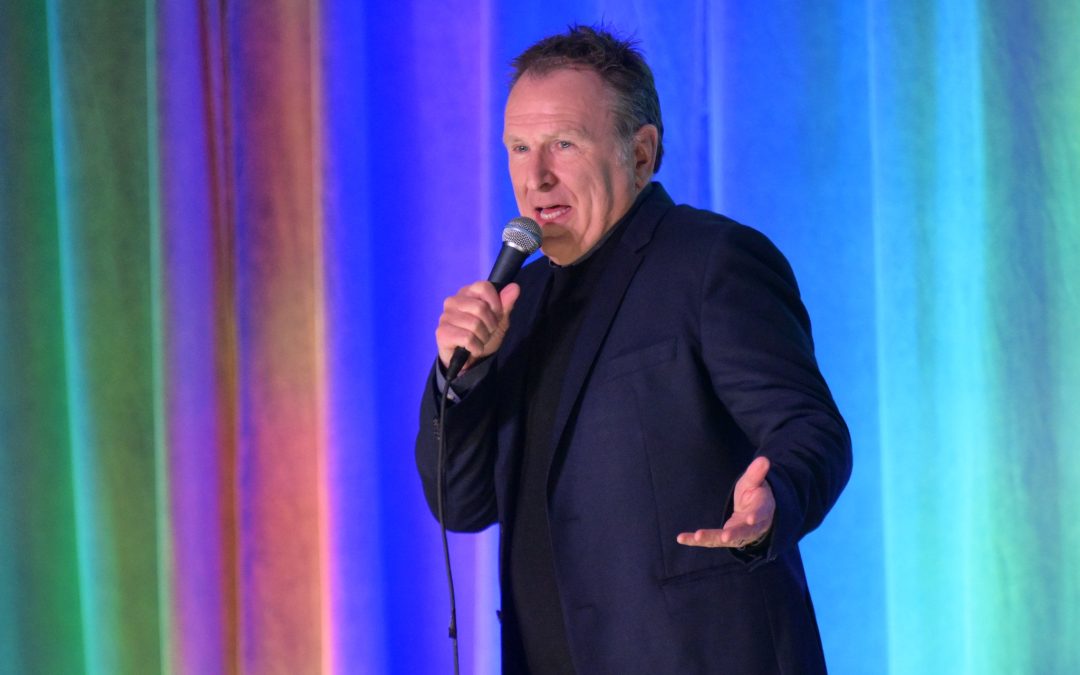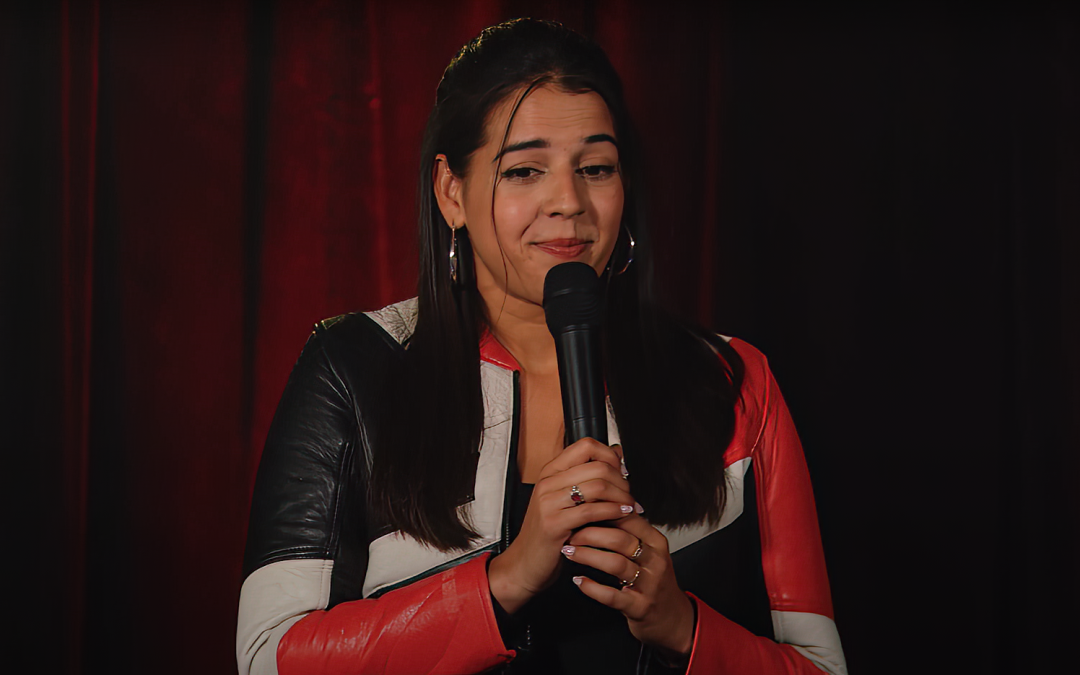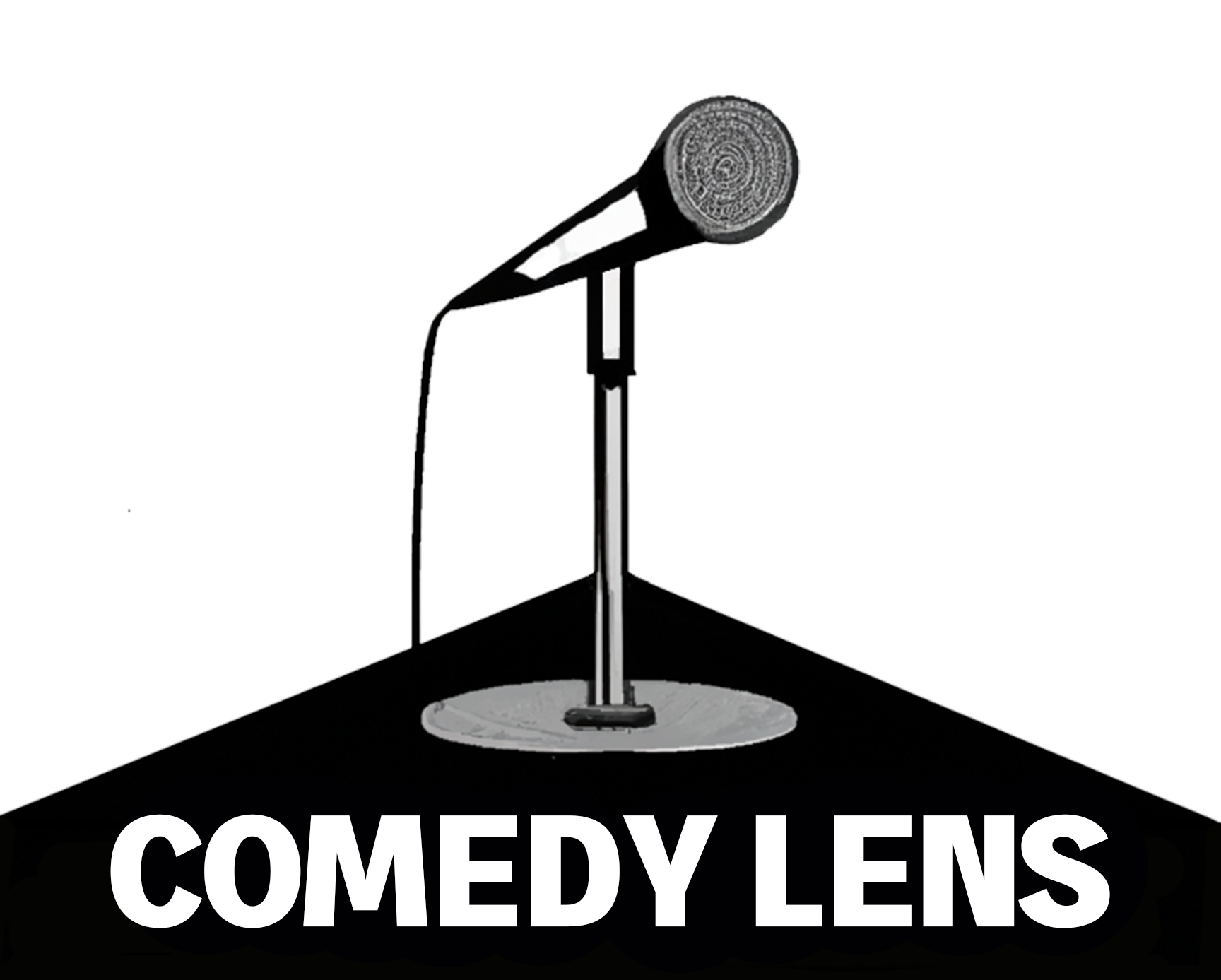When it comes to stand-up comedy, staying calm and in charge on stage is a crucial element of delivering a successful performance. Whether you’re a seasoned professional or just starting out, the pressure of making people laugh can be daunting. But fear not, there are tips and tricks that can help you stay calm and collected when you’re in the spotlight.
Understanding the craft of stand-up comedy is the first step to staying calm on stage. Knowing your material inside and out can help you feel more confident in your delivery. Take the time to develop your material and practice it until you feel comfortable with the pacing and timing. This will help ensure that you’re not stumbling over your words or forgetting your punchlines when you’re on stage.
Mastering the stage is another crucial element of staying calm during a stand-up comedy performance. Take the time to familiarize yourself with the stage and the microphone before the show starts. This will help you feel more comfortable when you’re on stage and can help prevent any technical difficulties that might throw you off your game. Remember, the audience is there to have a good time, so don’t be afraid to engage with them and have fun.
Key Takeaways
- Understanding the craft of stand-up comedy is crucial to staying calm on stage.
- Mastering the stage and engaging with the audience can help you feel more comfortable during your performance.
- Taking the time to develop your material and practice it can help you feel more confident in your delivery.
Understanding the Craft
To truly master the art of stand-up comedy, you need to understand the craft. This means knowing the different types of comedy and comedy methods, as well as how to structure and deliver your material effectively.
First, let’s talk about the importance of work. Writing and performing stand-up comedy is hard work, and it requires a lot of dedication and practice. You need to be willing to put in the time and effort to develop your skills and hone your craft.
When it comes to material, it’s important to find your own unique voice and point of view. This means being authentic and true to yourself, and not just trying to copy what other comedians are doing. You should also be constantly writing and refining your material, and be open to feedback and constructive criticism.
Structure and flow are also key components of successful stand-up comedy. You need to know how to structure your jokes and stories in a way that keeps the audience engaged and entertained. This means paying attention to pacing, timing, and transitions, and being able to read the audience and adjust your performance accordingly.
Finally, it’s important to understand the format and methods of stand-up comedy. This includes knowing the different types of comedy venues and audiences, as well as the different styles of comedy (e.g. observational, anecdotal, political, etc.). You should also be familiar with the different techniques and tools that comedians use to create humor, such as irony, sarcasm, and exaggeration.
By understanding the craft of stand-up comedy, you can become a more confident and effective performer, and ultimately achieve success in this challenging and rewarding field. So keep working on your material, honing your skills, and learning from the best in the business. With dedication and perseverance, you can achieve your dreams of becoming a stand-up comedian.
Developing Your Material
As a stand-up comedian, your material is the foundation of your routine. It’s what sets you apart from other comedians and what keeps your audience coming back for more. Here are some tips for developing your material:
Writing Jokes
Writing jokes is the bread and butter of stand-up comedy. It’s important to focus on what makes you unique and what you find funny. Start by writing down your observations and experiences from your daily life. Then, try to find the humor in those situations. Don’t be afraid to take risks and experiment with different types of humor.
Researching Topics
Researching topics is an important part of developing your material. Stay up to date with current events and popular culture. Look for topics that are relevant to your audience. If you’re struggling to come up with ideas, try brainstorming with other comedians or bouncing ideas off of friends and family.
Storytelling Vs One-Liners
Deciding whether to focus on storytelling or one-liners is a personal choice. Some comedians prefer to tell longer stories with a punchline at the end, while others prefer to focus on quick one-liners. Experiment with both styles to see what works best for you. Remember, the key is to keep your audience engaged and laughing.
Developing your material takes time, experience, and practice. Don’t be afraid to try new things and take risks. Remember, humor is subjective, so what works for one audience may not work for another. Keep writing every day, and you’ll find your voice as a storyteller or one-liner comedian. With these tips and tricks, you’ll be well on your way to creating a successful stand-up comedy routine that will have your audience in stitches.
Mastering the Stage
If you’re an aspiring comedian, mastering the stage is key to delivering a successful stand-up comedy act. Here are a few tips and tricks to help you stay calm and confident on stage.
Overcoming Stage Fright
Stage fright is a common fear that can be overcome with practice and preparation. Before your performance, take a few minutes to meditate and visualize yourself delivering a successful act. Focus on your breathing and let go of any negative thoughts or doubts that may arise.
Practicing Delivery
Delivery is one of the most important skills for a comedian to master. It’s not just about what you say, but how you say it. Practice your timing, pacing, and inflection to ensure that your jokes land with maximum impact.
One effective technique is to record yourself practicing your act and watch it back to identify areas for improvement. You can also practice in front of a mirror to work on your facial expressions and body language.
Mastering comedic delivery requires more than just personal practice, it involves engaging with an audience. Your friends, family, and fellow comedians can serve as a miniature audience, providing valuable feedback and reactions to fine-tune your act.
In addition to this, working with other comedians allows for the sharing of insights and constructive criticism. Organize sessions where you perform and critique each other’s work, using this shared knowledge to refine your performance. Remember, comedy is an interactive art form, constantly shaped by audience responses. Embrace these interactions and continue to evolve your act to keep people laughing.
Using Facial Expressions
Facial expressions are a powerful tool for comedians. They can help convey emotion, emphasize punchlines, and connect with the audience on a deeper level.
Practice using a range of facial expressions, from subtle nods and smiles to exaggerated grimaces and eye rolls. Remember to stay authentic and true to your comedic style.
Maintaining Eye Contact
Maintaining eye contact is essential for building a connection with the audience. It shows that you’re confident, engaged, and in control.
Make sure to scan the audience and maintain eye contact with different individuals throughout your act. This will help you connect with the audience on a personal level and keep them engaged from start to finish.
By mastering these skills and techniques, you’ll be well on your way to delivering a successful stand-up comedy act. Remember to stay calm, confident, and authentic, and you’ll be sure to leave the audience in stitches.
Engaging the Audience
To be a great comedian, you must know how to engage your audience. You need to understand the audience dynamics, get laughs, and handle feedback. Here are some tips to help you engage your audience and make your stand-up comedy routine a success.
Understanding Audience Dynamics
Understanding your audience is crucial to engaging them. You need to know who they are, what they like, and what they find funny. This will help you tailor your routine to their tastes and preferences.
One way to understand your audience is to interact with them before the show. Talk to them, ask them questions, and get a feel for their mood. This will help you gauge their energy level and adjust your routine accordingly.
Another way to understand your audience is to pay attention to their body language. If they are laughing, leaning forward, and engaged, you know you are doing a good job. If they are looking bored, distracted, or disinterested, you need to change your approach.
Getting Laughs
Making people laugh is the ultimate goal of stand-up comedy. To get laughs, you need to be funny, relatable, and original. Here are some tips to help you get laughs:
- Tell funny stories: People love to hear funny stories, especially if they can relate to them. Use your personal experiences to create funny and engaging stories that will make people laugh.
- Use humor to tackle serious issues: Humor can be a powerful tool to tackle serious issues. Use humor to shed light on important topics and make people think while making them laugh.
- Be spontaneous: Sometimes the best jokes come from unexpected moments. Be open to improvisation and be willing to take risks to make people laugh.
Handling Feedback
Handling feedback is an essential part of stand-up comedy. Whether it’s positive or negative, feedback can help you improve your routine and become a better comedian. Here are some tips to help you handle feedback:
- Be open to feedback: Don’t be defensive or dismissive of feedback. Be open to constructive criticism and use it to improve your routine.
- Learn from your mistakes: Don’t let negative feedback discourage you. Use it as a learning opportunity and make the necessary changes to improve your routine.
- Embrace positive feedback: Positive feedback can be a great confidence booster. Use it to motivate yourself and keep improving your routine.
Engaging your audience is essential to the success of your stand-up comedy routine. By understanding audience dynamics, getting laughs, and handling feedback, you can become a great comedian and make people laugh.
The Role of Open Mics
As an aspiring comedian, open mic nights are the perfect opportunity for you to get stage time and work on your craft. Open mics are a great way to test out new material, get feedback from other comedians, and develop your stage presence. In this section, we’ll explore the benefits of open mic nights and how they can help you find your style.
Benefits of Open Mic Nights
Open mic nights are a crucial part of the comedy scene. They provide a platform for comedians to showcase their material and get valuable stage time. Here are some benefits of open mic nights:
- Practice makes perfect: Open mics provide a low-pressure environment to practice your material. You can try out new jokes, experiment with different styles, and get a feel for what works and what doesn’t.
- Feedback from other comedians: Open mics are a great place to get feedback from other comedians. You can learn from their experiences, get tips on delivery, and get constructive criticism on your material.
- Networking opportunities: Open mics are a great place to network with other comedians, producers, and club owners. You can make connections that can lead to future gigs and opportunities.
- Build confidence: The more stage time you get, the more comfortable you’ll feel on stage. Open mics are a great way to build confidence and overcome stage fright.
Finding Your Style at Open Mics
Open mics are a great place to find your comedic voice and develop your style. Here are some tips for finding your style at open mics:
- Try different styles: Don’t be afraid to experiment with different styles. Try out different personas, delivery styles, and joke structures to see what works best for you.
- Be yourself: Your comedic voice should reflect who you are as a person. Don’t try to be someone you’re not.
- Listen to the audience: Pay attention to how the audience reacts to your material. If they’re not laughing, it might be time to rework your material.
- Get feedback: Ask other comedians for feedback on your material. They can provide valuable insight into what’s working and what’s not.
Open mic nights are an essential part of the comedy scene. They provide a platform for comedians to practice their material, get feedback, and develop their style. By taking advantage of open mics, you can improve your craft, build confidence, and make valuable connections in the industry.
The Path to Success
Being a successful stand-up comedian requires hard work, dedication, and a willingness to learn from both failure and success. Here are some tips for aspiring comedians to help them achieve their goals.
Learning from Failure
One of the most important lessons you can learn as a comedian is that failure is a part of the process. Every comedian has bombed on stage at some point in their career, and it’s how you handle those failures that will determine your success. Instead of dwelling on your mistakes, take the time to analyze what went wrong and how you can improve for next time. Use failure as a learning experience and an opportunity to grow as a comedian.
Emulating Successful Comedians
While it’s important to develop your own unique style and personality on stage, it’s also helpful to study and learn from successful comedians who have come before you. Watch recordings of famous comedians and pay attention to their rhythm, timing, and delivery. Take note of what works and what doesn’t, and use that knowledge to inform your own performances. Don’t be afraid to borrow techniques and styles from other comedians, but always put your own spin on them to make them your own.
Promoting Yourself on Social Media
In today’s digital age, social media is an essential tool for promoting yourself as a comedian. Use platforms like Twitter, Instagram, and YouTube to share clips of your performances, connect with fans, and build your brand. Be consistent with your posting and engage with your followers to build a loyal fanbase. Remember that social media is a two-way street, so be sure to support other comedians and engage with the wider comedy community as well.
The path to success as a stand-up comedian is paved with hard work, dedication, and a willingness to learn from both failure and success. By learning from your mistakes, emulating successful comedians, and promoting yourself on social media, you can build a successful career in comedy and make a name for yourself in the industry. So keep working hard, stay true to yourself, and never stop learning and growing as a comedian.
Final Thoughts
Staying calm on stage is crucial for a successful stand-up comedy performance. By implementing the tips and tricks outlined in this article, you can overcome your performance anxiety and deliver your best performance yet.
Remember, preparation is key. The more you practice and prepare your material, the more confident you will feel on stage. Take the time to rehearse your set in front of friends or family, or even record yourself to get a sense of your timing and delivery.
When it comes to managing your nerves, relaxation techniques can be incredibly helpful. Try deep breathing exercises, meditation, or visualization to calm your mind and body before taking the stage. You can also try guided imagery, which involves imagining yourself in a calm and peaceful setting to help ease anxiety.
It’s also important to remember that mistakes happen, and that’s okay. Don’t let a flubbed punchline or missed beat throw you off your game. Embrace the moment and use it as an opportunity to connect with your audience and show your human side.
Finally, have fun! Stand-up comedy is all about making people laugh and having a good time. Don’t take yourself too seriously, and enjoy the moment. With the right mindset and preparation, you can crush your next performance and leave your audience wanting more.
Frequently Asked Questions
How can I control my breathing to reduce anxiety on stage?
Controlling your breathing is one of the most effective ways to reduce anxiety on stage. Take deep breaths before going on stage, and focus on breathing slowly and deeply throughout your performance. This can help calm your nerves and keep you centered.
What are some techniques for calming nerves before a stand-up performance?
There are many techniques you can use to calm your nerves before a stand-up performance. Some people find that meditation or visualization exercises help them stay calm and focused. Others prefer to listen to calming music or practice relaxation techniques like deep breathing or progressive muscle relaxation.
Are there any physical exercises I can do to relax my body before going on stage?
Yes! Physical exercise can be a great way to relax your body and calm your nerves before going on stage. Try doing some light stretching or yoga to help loosen up your muscles and release tension.
How can I mentally prepare myself for a successful stand-up comedy performance?
Mental preparation is just as important as physical preparation when it comes to stand-up comedy. Take some time before your performance to visualize yourself succeeding on stage. You can also practice positive self-talk and remind yourself that you are capable of delivering a great performance.
What are some tips for staying present and focused on stage?
Staying present and focused on stage can be challenging, but there are a few things you can do to help. Try to stay in the moment and focus on your material. Avoid getting distracted by the audience or your surroundings. And remember to breathe deeply and stay centered.
How can I turn nervous energy into positive energy on stage?
Nervous energy can be a great asset on stage if you know how to channel it properly. Instead of letting your nerves get the best of you, try to use that energy to fuel your performance. Use your nervousness to add energy and excitement to your material, and remember to have fun!

Trae Crowder Releases New Comedy Special: ‘Trash Daddy’
Comedian Trae Crowder, known for his viral videos as the "Liberal Redneck," has once again taken the comedy world by storm with his sophomore stand-up special, Trash Daddy. Released on YouTube via 800 Pound Gorilla Media on March 13, 2025, this one-hour special...

Story Warz: The New Comedy Podcast of Deception and Detection
Looking for a fresh comedy podcast that will have you laughing and guessing? Story Warz combines the perfect mix of storytelling, comedy, and competitive gameplay. Hosted by renowned Legion of Skanks comedians Big Jay Oakerson and Luis J. Gomez, this innovative...

Adam Ray Release New Comedy Special: ‘Like And Subscribe’
Adam Ray returns with the release of his third comedy special, Like and Subscribe. A beloved figure in comedy circles, Ray has made a name for himself not just on stage and podcasts, but on the big screen as well, with impressive roles that showcase his dynamic...

Colin Quinn Releases New Comedy Special: ‘Our Time Is Up’
In the ever-shifting landscape of digital content, comedy has found a resilient platform on YouTube, and the latest to grace this arena is Colin Quinn with his comedy special, Our Time Is Up, released on May 6. Quinn, known for his sharp wit and unapologetic...

Casey Rocket Blasts Off as the New Regular on Kill Tony
In an exhilarating shake-up to the Kill Tony universe, fans of the live podcast were treated to a high-octane announcement: Casey Rocket has officially been named the newest regular, set to open the show with his inimitably eccentric comedy. Rocket is stepping in for...

Kim Congdon’s New Standup Comedy Special: ‘Childless Milf’
Kim Congdon, a standup comedian known for her unapologetic humor and lively stage presence, has released her debut comedy special, Childless Milf. This release marks a significant milestone in Congdon's career, offering her growing audience a 30-minute feature of her...

Trevor Wallace Releases His First Comedy Special: ‘Pterodactyl’
Trevor Wallace, known for his hilarious sketches and the Stiff Socks podcast, recently released his highly anticipated comedy special, Pterodactyl, exclusively on Amazon Prime. Wallace has gained impressive success in the world of stand-up comedy. With a distinct...
Related Articles
Trae Crowder Releases New Comedy Special: ‘Trash Daddy’
Comedian Trae Crowder, known for his viral videos as the "Liberal Redneck," has once again taken the comedy world by storm with his sophomore stand-up special, Trash Daddy. Released on YouTube via 800 Pound Gorilla Media on March 13, 2025, this one-hour special...
Adam Ray Release New Comedy Special: ‘Like And Subscribe’
Adam Ray returns with the release of his third comedy special, Like and Subscribe. A beloved figure in comedy circles, Ray has made a name for himself not just on stage and podcasts, but on the big screen as well, with impressive roles that showcase his dynamic...
Colin Quinn Releases New Comedy Special: ‘Our Time Is Up’
In the ever-shifting landscape of digital content, comedy has found a resilient platform on YouTube, and the latest to grace this arena is Colin Quinn with his comedy special, Our Time Is Up, released on May 6. Quinn, known for his sharp wit and unapologetic...



